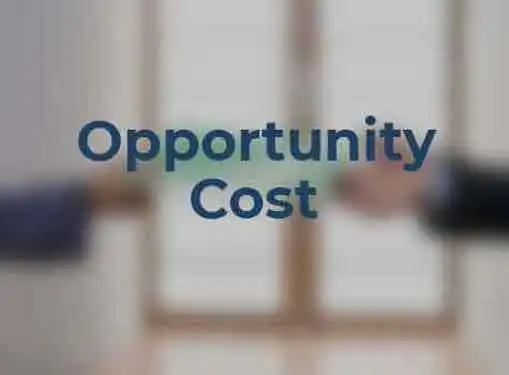Business Economics for Entrepreneurs
Opportunity Cost
Written by Bobby Jan for Gaebler Ventures
The concept of opportunity cost is central to economics and economic thinking. Understanding opportunity cost will help you determine the true value of decisions.
Economics is a social science that studies how individuals and societies allocate limited resources to satisfy unlimited wants and how to make this allocation more efficient.

Economics is, essentially, the science of choices. Because we do not have the capacity to do everything we want to do all at once, we must make choices.
Given the choice between alternatives, we will always choose what brings the most benefits. However, by choosing the best choice, we must give up the second best choice.
Opportunity cost is the value of any alternative that you must give up when you make a choice. In other words, when you choose A over B, the cost of your choice is the value of choosing B.
For example, if you make $1,000 a day and you have the choice of either working or taking that day off to relax. If you choose to relax, you are forgoing the opportunity to earn $1,000. Therefore, the opportunity cost for choosing to take the day off is $1,000. On the other hand, the opportunity cost for working that day is the value of taking the day off to relax, however imprecise that value may be.
Let's say you want to take the day off to go to Disneyland instead of staying at home. Let's assume that the admission ticket cost $50, food and drinks cost $25, and transportation cost $25, which is all that you will spend for going to Disneyland. The accounting cost of going to Disney is $100 ($50+$25+$25), which is how much most people without knowledge of economics think going to Disneyland will cost. However, the economic cost of going to Disneyland is $1,100 ($100 directly associated with going to Disney plus $1,000 in opportunity cost).
The economic concept of opportunity cost is a very powerful concept that will enable you to see another dimension in your decision making. As an entrepreneur, you must consistently juggle between alternatives. The concept of opportunity cost tells you that there really is no free lunch: there is always an opportunity cost. Understanding this concept will help you determine the true cost (economic cost) of your decisions.
Let's end with a tricky question that even most economists get wrong:
You won a free ticket to see play A. Play B is performing at the same time and is your next-best alternative. Tickets to see play B cost $40 but on any given day you are willing to pay up to $50 to see play B. Based on this information, what is the opportunity cost of seeing play A?
- $0
- $10
- $40
- $50
Take your time to think about it...
The answer is $10. Why? You are looking for the value of the alternative that you are forgoing. On any given day, you are willing to pay up to $50 to see play B so play B is worth $50 dollars to you. However, you must pay $40 dollars to go see it. Therefore, the net value of seeing play B is $10. By definition, your opportunity cost of seeing play A is $10.
Cheng Ming (Bobby) Jan is an Economics major at the University of Chicago who has a strong interest in entrepreneurship and investing.
Share this article
Additional Resources for Entrepreneurs

Conversation Board
Do you agree with us that entrepreneurs would do well to understand basic economic principles? Share your comments below.